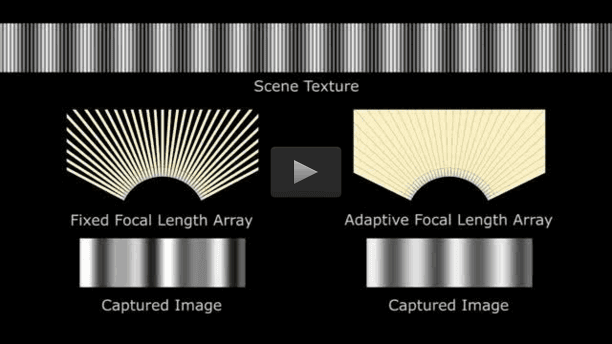
Drugs researcher David Nutt discusses brain-imaging studies with hallucinogens.
Researchers have published the first images showing the effects of LSD on the human brain, as part of a series of studies to examine how the drug causes its characteristic hallucinogenic effects.
David Nutt, a neuropsychopharmacologist at Imperial College London who has previously examined the neural effects of mind-altering drugs such as the hallucinogen psilocybin, found in magic mushrooms, was one of the study’s leaders. He tells Nature what the research revealed, and how he hopes LSD (lysergic acid diethylamide) might ultimately be useful in therapies.
Why study the effects of LSD on the brain?
For brain researchers, studying how psychedelic drugs such as LSD alter the ‘normal’ brain state is a way to study the biological phenomenon that is consciousness.
We ultimately would also like to see LSD deployed as a therapeutic tool. The idea has old roots. In the 1950s and 60s thousands of people took LSD for alcoholism; in 2012, a retrospective analysis of some of these studies suggested that it helped cut down on drinking. Since the 1970s there have been lots of studies with LSD on animals, but not on the human brain. We need that data to validate the trial of this drug as a potential therapy for addiction or depression.
Why hasn’t anyone done brain scans before?
Before the 1960s, LSD was studied for its potential therapeutic uses, as were other hallucinogens. But the drug was heavily restricted in the UK, the United States and around the world after 1967 — in my view, due to unfounded hysteria over its potential dangers. The restrictions vary worldwide, but in general, countries have insisted that LSD has ‘no medical value’, making it tremendously difficult to work with.
How did you get approval to give volunteers LSD?
United Nations conventions and national laws do permit academic research on heavily-restricted drugs such as LSD. In the UK, this sort of study is legal so long as the drug is not being used as a therapeutic. This was not a clinical trial: we gave LSD to volunteers who were already experienced with the drugs and took their brain scans over eight hours in the lab in Cardiff, in 2014. It took us nine months to get approval from a UK ethics committeefor the work: the research was funded by the Safra Foundation [a philanthropic foundation in Geneva, Switzerland] and the Beckley Foundation [a charity near Oxford, UK, that promotes drug-policy reform] though we needed to crowdfund through Walacea.com for the resources to analyse the data.
What were the results of the study?
To take advantage of the “long trip” produced by LSD — an eight-hour experience, compared to say four on psilocybin — we put our participants through a huge range of tests.
Learn more: Brain scans reveal how LSD affects consciousness
The Latest on: LSD
[google_news title=”” keyword=”LSD” num_posts=”10″ blurb_length=”0″ show_thumb=”left”]
via Google News
The Latest on: LSD
- Psychedelics Activate Serotonin to Produce Antidepressant Effecton May 8, 2024 at 11:51 am
A new study advanced our understanding of how psychedelic drugs activate serotonin receptors to offer potential treatments for neuropsychiatric disorders.
- ‘120 LSD strips in your parcel caught by Customs’: Senior citizen loses Rs 2 cr in cyber fraudon May 8, 2024 at 10:17 am
The senior citizen was coerced into transferring Rs 2 crore of her life savings through cyber extortion in 'drugs in parcel fraud.' ...
- Scientists unravel how psychedelic drugs interact with serotonin receptors to potentially produce therapeutic benefitson May 8, 2024 at 8:28 am
Researchers at the Icahn School of Medicine at Mount Sinai have shed valuable light on the complex mechanisms by which a class of psychedelic drugs binds to and activates serotonin receptors to ...
- Psychedelic toxins from toads could treat depression and anxietyon May 8, 2024 at 8:00 am
Similar effects have been seen in people receiving LSD or psilocybin treatments. “Frankly, that’s what we hope to see,” says Audrey Warren at Mount Sinai Hospital. Because humans share similar ...
- River festival postponed by organiserson May 8, 2024 at 5:09 am
The organisers of River Festival 2024 said this year's event was unable to go ahead due to unforeseeable operational and timing constraints. The event, organised by LSD Promotions, was due to take ...
- One Dose of LSD-Based Medication Yields Rapid, Durable Response for GADon May 7, 2024 at 10:52 am
A single oral administration of an LSD-based medicine provided rapid and durable improvement in moderate to severe generalized anxiety disorder (GAD) in a phase 2B study.
- Single Dose of LSD-Containing Drug Improved Anxiety Symptomson May 6, 2024 at 12:06 pm
A single dose of an LSD-containing investigational drug rapidly alleviated symptoms of moderate-to-severe generalized anxiety disorder (GAD), a phase IIb randomiz ...
- LSD — Yes, LSD — Shows Promising Results For Treating Anxietyon May 6, 2024 at 3:30 am
A new study shows that LSD is highly effective at treating generalized anxiety disorder for up to 12 weeks with just a single dose. And it is fast-acting.
- A champion of psychedelics who includes a dose of skepticismon May 4, 2024 at 3:00 am
Ernesto Londoño’s memoir 'Trippy' explores psychiatry's renewed flirtation with drugs such as LSD. He's a believer but not a zealot.
- How the Nazis helped ‘discover’ LSDon April 27, 2024 at 7:26 am
With LSD finally gaining mainstream acceptance—just last month, the FDA granted breakthrough status to an LSD formula to treat anxiety—author Norman Ohler investigates how it took so long for the ...
via Bing News










